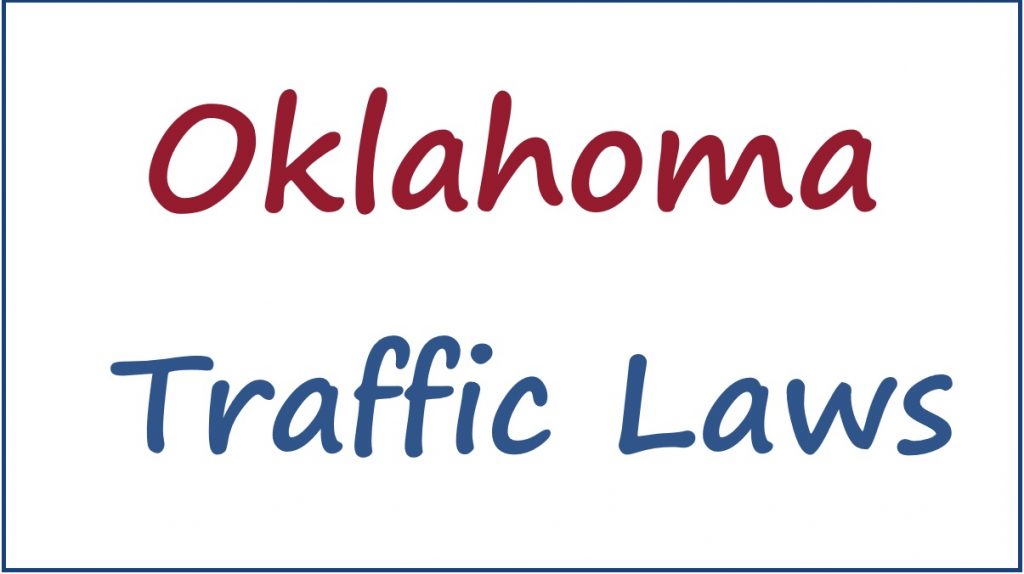Oklahoma traffic ticket and violations: speeding ticket, responding to your ticket. How to Respond to Traffic Tickets in Oklahoma State.
Oklahoma
Traffic tickets are legal documents issued by the State traffic department. The ticket is offered as proof of traffic violation and promises to comply with the law. A traffic law offender can either pay the ticket or contest in court. It’s best to handle the ticket before the deadline to avoid extra penalties or court warrant. The ticket contains violation details, court date and amount to pay for the fine. The Oklahoma state has two classes of traffic violations moving and non-moving violations. For the severe cases, the state considers them as a felony and may attract hefty fine or jail sentence.
Oklahoma Traffic Laws

The state has different ways of handling the moving and non-moving violations. The moving violations or major violations occur when the vehicle is in motion. The offence is punishable by fine and in severe cases such as accident or death of another person. The defendant might get a license suspension or jail sentence. Examples of moving violations:
- Running a stop sign or red light.
- Hit and run
- Leaving the scene of the accident
- Reckless driving
- Driving under the influence of drugs.
- Speeding.
For non-moving violations, the offence happens when the vehicle is in motion. The crimes are minor and punishable by fines. Examples of non-moving violations include:
- Driving without your seat belt,
- Using the cellphone while driving,
- Inattentive driving,
- Having faulty equipment.
- Parking at the wrong space.
Oklahoma Point System
Oklahoma State uses the point system to control the driving habit of all state drivers. However, the state point system differs from other states. The majority of the state suspend licenses if the offender accumulates 12+ points within two-three years. For Oklahoma, the law suspended an offender’s license after they get 10 points in five years. These a great challenge as most violations have two or three points meaning they might accumulate fast. The state adds points on moving violations, especially if they are a felony.
Speeding Traffic Violations in Oklahoma
A speeding ticket is under the moving violation law; the offence is treated a severe infraction of the state. Oklahoma has two speeding violations.
- Basic speeding violations:
- Absolute speed limits:
Basic speeding laws
Basic laws are flexible and straightforward, for they require the driver’s concern and judgment. The law only needs the driver to drive carefully and keep the roads safe. One should drive at a reasonable speed and check the conditions of the road and areas. The law expects the driver to drive at safe speeds to avoid accidents. Drives need to drive safe at road curves, during bad weather, hilly crests etc.
Absolute Speed Limits
For speed limits, there is no negotiation; the speed restricted to certain limits according to the area. If the fixed limit is 55 mph, driving beyond the limit is considered a violation.
Oklahoma absolute speed limits
- 25mph for the school and working zones
- 35mph on the highways, state parks and wildlife refuges.
- 55mph on other roads.
Unless the absolute limits change, the driver should keep the above set limits. The traffic department has speed limit signs on roads be keen to check.
How to Respond to Traffic Tickets in Oklahoma State
Paying for the ticket
You can opt to pay the traffic ticket and avoid the court. However, if your ticket requires you to appear, you need to wait for the court date. The state has four payment modes.
- Online method
- By mail
- By phone
- In-person
Pleading not guilty
The defendant can plead not guilty and request for contest hearing in court. You can visit the respective county court or send mail. The court would give a hearing date if you were to appear in court ensure to appear and present your plead. Have all details ready or hire a lawyer to assist in winning the case.
Pleading for mitigation
For drivers who admit they are guilty, they have a chance to plead for a mitigation hearing. The process involves pleading for flexible terms of payment or reduction of the fine. The court will opt on one of the options. The judge’s decision can’t be appealed.